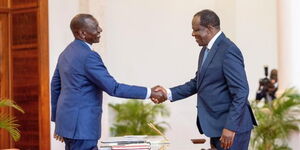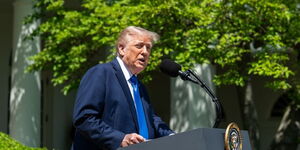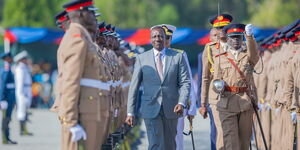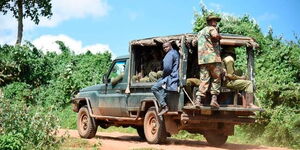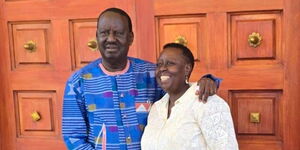Scientists from around the world on Monday held meetings to discuss the setting up a space exploration facility in Kenya, which will be the only one in Equatorial Africa.
Kenya was picked as the best option due to its unique high geographical location on the equator and the fact that it has no observatory center on record.
According to the scientists, Kenya also has a low cloud coverage in North Western part of the country, several mountain tops which are easy to access, dissociation of the mountain tops from urbanization and industrialization and the local climate that is suitable for viewing. Areas mentioned so far as suitable candidates for the observatory include Mount Kulal and Ol Donyo Nyiro both in Southern shores of Lake Turkana.
The team together with students from Technical University of Kenya and Kenyatta University further conducted research on the viability of the region and equipment needed to set up in the areas.
According to Paul Baki, Head of Physics and Space Science at the Technical University of Kenya, the facility will offer a good platform for science students to practice and develop their skill.
“Kenya currently suffers a serious brain drain among graduates in science and technology. This is largely due to the lack of facilities within the country for graduates with scientific talent to develop their skills for the benefit of the local economy.
"The few disciplines in which scientific research of an international standard takes place are predictable for a developing country: medicine, veterinary science, and agriculture. There are virtually no avenues for research into mathematics, physics or astronomy,” Baki noted.
Doctor Martin Wells from UK Astrology Training Center, who has been part of the team, indicated that he hopes for a fruitful relationship after the research and productive meetings over the last year would lead to the setting up of the space exploration center.
“The UK team are very happy indeed on the success of the work to date on preparing a case for a definitive Equatorial research observatory in Kenya.
I hope that the legacy of this work will lead to future generations of African astronomers having an opportunity to benefit from access to a Kenyan observatory and at astronomy sites around the World” he Commented.
Baki addressed the issue of capacity building stating that 16 Kenyans are currently being educated on the subject to assist in gaining more information about the new advancement.
“The human resource challenge is being addressed through the Square Kilometer Array bursary program (so far 16 Kenyans sponsored), where they study in South African universities and use South African based infrastructure the Development in Africa with Radio Astronomy (DARA) program spearhead by the University of Leeds, whereby they study in UK universities and use based infrastructure, and lastly training in local universities,” Baki added.
Baki also cited the need for Government involvement in the form of official endorsement, in order to fasten the process to begin operations, noting that the team will be seeking funding for the telescope itself from international bodies.

